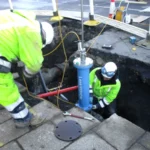Harrogate, a town long celebrated for its spa heritage and elegant charm, is undergoing a quiet transformation. While tourism and retail remain key pillars, the local economy is diversifying rapidly, adapting to national and global trends in business, finance, and technology.
From Tourism Hub to Business Ecosystem
For decades, Harrogate’s economy revolved around leisure, hospitality, and wellness. Visitors came for its mineral springs, tea rooms, and boutique hotels. Yet, in recent years, the town has seen a shift towards professional services, finance, and technology-based enterprises. This evolution mirrors broader economic patterns across Yorkshire, where traditional sectors coexist with new, knowledge-driven industries.
As more residents engage in online ventures, from digital consultancy to independent trading, financial literacy has become part of the town’s modern fabric. Conversations once reserved for London’s financial circles are now commonplace in Harrogate’s cafés and co-working spaces. Terms like CFD meaning or “forex leverage” are no longer foreign to locals experimenting with online investing or diversifying income streams. This cultural shift towards digital finance underscores how even a historic town can modernise without losing its identity.
The Rise of Digital and Professional Services
Harrogate’s business ecosystem has expanded to include digital marketing agencies, fintech start-ups, and remote service providers. Many firms have established satellite offices here to take advantage of the skilled workforce and excellent quality of life. The town’s proximity to Leeds and York allows entrepreneurs to stay connected to larger markets while enjoying a more relaxed environment.
The pandemic accelerated this trend. Remote work opened new possibilities, and Harrogate emerged as an appealing base for professionals seeking balance between city accessibility and countryside serenity. Co-working spaces such as the Harrogate Business Centre and the Innovation Hub at Cardale Park have become thriving communities of freelancers, tech specialists, and consultants.
Real Estate and Regeneration
Property remains a cornerstone of Harrogate’s local economy, though its focus has shifted. Once dominated by hospitality investments, the market is now driven by residential demand and commercial conversions. High-end flats and office redevelopments have replaced ageing hotels, reflecting the changing needs of the workforce.
The regeneration of town-centre spaces has also spurred local retail resilience. Independent shops and cafés continue to flourish alongside national chains, supported by residents who prioritise local spending. Meanwhile, the housing market, though competitive, remains relatively stable compared to major UK cities, making Harrogate attractive to young professionals and families relocating from urban centres.
Sustainability and Green Growth
A notable feature of Harrogate’s evolving economy is its embrace of sustainability. The local council has invested in green transport initiatives, including electric vehicle infrastructure and cycle-friendly routes. Businesses are increasingly aligning with environmental goals, from low-emission logistics to eco-conscious tourism.
The hospitality sector, historically central to Harrogate’s brand, has also evolved. Boutique hotels and restaurants now market themselves as sustainable destinations, emphasising locally sourced ingredients and ethical supply chains. This shift not only meets consumer demand but strengthens Harrogate’s identity as a forward-thinking town rooted in responsible growth.
Education, Skills, and the Future Workforce
Education plays a vital role in shaping Harrogate’s economic transformation. Schools and colleges are partnering with regional employers to equip students with digital and entrepreneurial skills. Training programmes in coding, marketing, and financial literacy have become more common, reflecting a recognition that future prosperity depends on adaptability and innovation.
The rise of hybrid working has also influenced local training priorities. Many residents are retraining for remote-friendly careers such as design, IT consultancy, or finance analysis. These efforts ensure that Harrogate’s talent pool continues to evolve in step with the demands of the modern economy.
The Role of SMEs and Start-Ups
Small and medium-sized enterprises (SMEs) are the backbone of Harrogate’s economy. From artisan food producers to tech start-ups, these businesses inject vitality into the town’s commercial scene. Local initiatives, such as the Harrogate BID (Business Improvement District), provide funding and marketing support to help SMEs thrive in a competitive landscape.
Business networking events have become central to local culture. Entrepreneurs meet not just to exchange ideas but to collaborate on cross-sector projects that blend technology, sustainability, and community development. This entrepreneurial spirit positions Harrogate as a model for other regional towns adapting to economic modernisation.
Connectivity and Infrastructure
Transport and digital connectivity remain critical to sustaining Harrogate’s growth. The rail link to Leeds and York continues to attract commuters, while improved broadband infrastructure supports remote work and online enterprises. Future investment plans include upgrades to local transport hubs and continued expansion of fibre-optic networks, ensuring Harrogate stays competitive in the digital economy.
These developments make the town an appealing destination for investors and businesses seeking long-term stability outside major metropolitan centres. Combined with its lifestyle advantages, green spaces, cultural events, and strong community ties, Harrogate offers an ecosystem where commerce and quality of life coexist harmoniously.
A Town Balancing Heritage and Innovation
Harrogate’s changing economy reflects a broader story of resilience and reinvention. While the charm of its Victorian heritage remains intact, the town’s mindset has shifted firmly toward the future. It has adapted to new technologies, embraced green growth, and fostered a business culture grounded in innovation and inclusivity.
This transformation shows that small towns need not be left behind in the modern economy. Harrogate demonstrates how a community can preserve its distinctive character while embracing new opportunities in digital finance, sustainability, and entrepreneurship.
In essence, Harrogate’s journey is a story of balance, between past and future, tradition and transformation, local and global. As the town continues to evolve, it stands as a testament to Yorkshire’s broader economic renewal and the growing potential of regional hubs across the UK.






